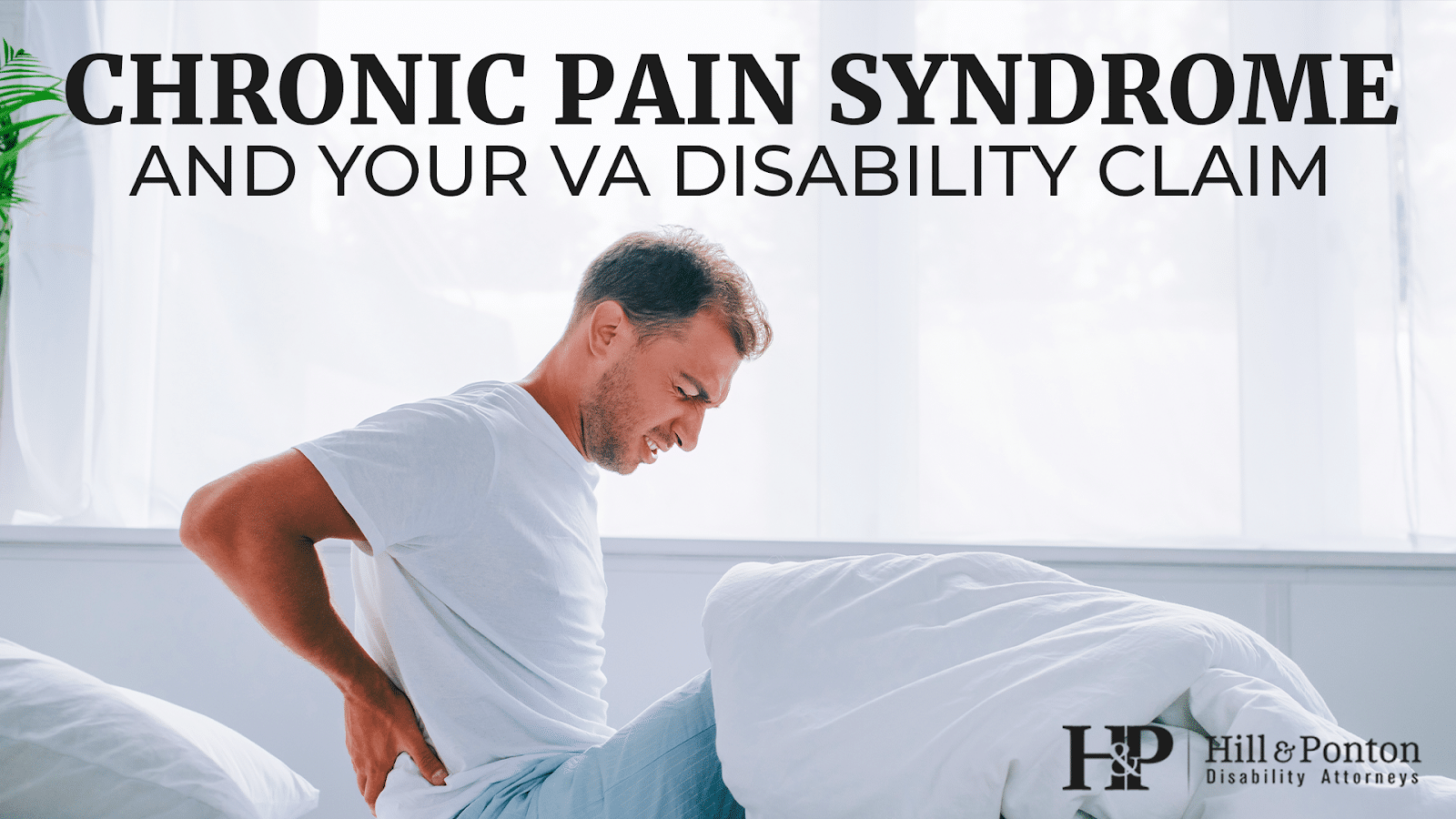Va Disability Unspecified Depressive Disorder
depressive unspecified wallpaperDoing so involves satisfying the following three elements. Direct service connection secondary service connection and service connection by aggravation.

Chronic Pain Syndrome Your Va Disability Claim Hill Ponton P A
Eligibility for VA Compensation.

Va disability unspecified depressive disorder. If you are considered service-connected you will receive a VA disability rating for MAJOR DEPRESSIVE DISORDER of 0 10 30 50 70 or 100. A VA diagnosis of major depressive disorder needs at least two significant episodes of depression that continue for at least two weeks. In order to receive VA disability benefits for adjustment disorder veterans must first establish service connection.
48 5509 4130-3 9440. As many as one in every three veterans suffer from depression anxiety adjustment disorder PTSD or other psychiatric disorder - two to three times more than the general population. The nomenclature employed in this portion of the rating schedule is based upon the American Psychiatric Associations Diagnostic and Statistical Manual of Mental Disorders Fifth Edition DSM-5 see 4125 for availability information.
VA Disability Ratings for Anxiety Anxiety is defined as intense excessive and persistent worry and fear about everyday situations. There are three ways to receive disability compensation for depression. 10 Percent Mental Health Rating Criteria.
1 a current diagnosis of adjustment disorder. VA Disability Rating Scale for Depression 0 Percent Mental Health Rating Criteria A mental condition has been formally diagnosed but symptoms are not severe enough either to interfere with occupational and social functioning or to require continuous medication. The operative assessment for the VA is whether there is an etiological causal relationship between the diagnosis depression and service.
Direct service connection means that an in-service incident directly caused a veterans depression. The CP examiner opining that the depressive disorder is directly related to service or secondarily related to a service connected disability. VA Service Connection for Adjustment Disorder.
Major depressive disorder Mood disorder not otherwise specified No. Adjustment disorder is a condition that looks similar to depression and affects many veterans as they transition back to civilian life. Depression is a major cause of unemployability in the US making VA disability compensation for depression extremely important.
For the purposes of VA disability benefits the forms and data systems that must be updated. In the VA Schedule of Ratings Disabilities depression is noted under the category of Mood Disorders Two types of depression are listed. In most circumstances the causal relationship must be established through competent medical evidence ie.
Obsessive compulsive disorder Other and unspecified neurosis Posttraumatic stress disorder Panic disorder andor agoraphobia. Veterans can apply for major depressive disorder VA disability benefits and other mental conditions at the same time. Veterans Benefits Administration Supplement No.
The VA will give you a disability rating based upon the severity of your MAJOR DEPRESSIVE DISORDER specifically related to your level of occupational and social impairment. Dysthymic disorder and major depressive disorder. The VA is likely to give you one rating for all your mental impairments.
Fortunately the VA offers disability benefits to those suffering from service-related adjustment disorder. It is estimated that one-third of adults in the United States suffer from anxiety disorders. The Department of Veterans Affairs VA is amending the portion of its Schedule for Rating Disabilities VASRD dealing with mental disorders and its adjudication regulations that define the term psychosis.
2 evidence of an in-service event injury or illness. Rating agencies must be thoroughly familiar with this manual to properly implement the directives in 4125 through 4129 and to apply the general. Veterans are eligible for service-connected disability compensation for depression.
In the VA Schedule of Ratings Disabilities depression is listed under the category Mood Disorders Two depression diagnoses are listed dysthymic disorder and major depressive disorder. How the VA Classifies Depression. The most common symptoms of anxiety disorders include the following.
And 3 a medical. These mental conditions should be considered service-connected as long as there is a nexus to your military service.